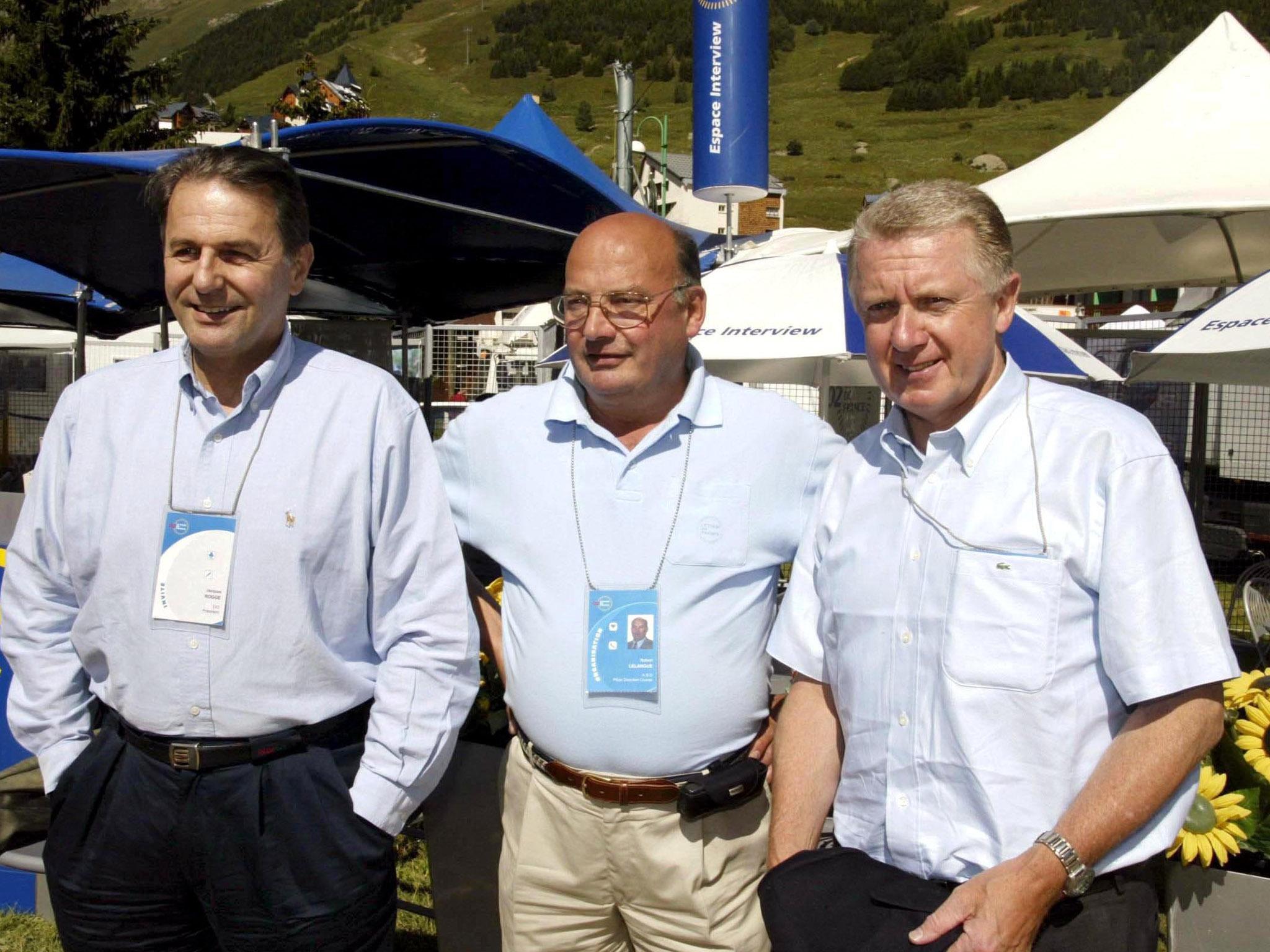Hein Verbruggen obituary: Sportsman responsible for raising the profile of cycling around the world
As president of the International Cycling Union, who saw the commercial potential of cycling, but faced criticism for not doing enough to prevent doping in the age of Lance Armstrong

As president of the International Cycling Union, Hein Verbruggen, who has died of leukemia aged 75, helped build the sport into an international powerhouse even as it became increasingly marred by reports of doping – most prominently featuring Lance Armstrong.
Verbruggen served from 1991 until 2005 as president of the International Cycling Union (UCI), a position that made him one of the most influential leaders in international sport. He held important roles on the International Olympic Committee (IOC), helping organise the 2004 Olympics in Athens and 2008 in Beijing.
During his time in the IOC, Verbruggen navigated questions about the selection of Beijing for the Games at a time when the Chinese government was under scrutiny for its human rights record. He emphasised the IOC’s role as a sporting organisation and sought to distance it from political questions.
Verbruggen was born in Helmond, the Netherlands, in 1941, and graduated from Nyenrode Business University in Breukelen in 1964. As a sales manager with Mars he persuaded the company to sponsor a cycling team, then entered cycling administration in the 1970s.
He saw an untapped commercial potential in cycling and the rise in the 1990s and 2000s of Armstrong, a cancer survivor who dazzled fans around the world with his athletic talent and moving personal story, saw the realisation of that potential.
But cycling faced withering scrutiny during the Festina affair of 1998, named after the French team that was ejected from the Tour de France charged with doping. Verbruggen trimmed the suspensions of several riders to seven months from eight, despite the IOC’s preference for two-year suspensions. “A ban for two years for a rider means a ban for life,” he said.
The following year, Armstrong won the first of his unprecedented seven Tour victories, a run that made him an international celebrity, although he was increasingly trailed by suspicions of doping.
In 2012, the UCI stripped the Texan of his seven titles after an investigation by the US Anti-Doping Agency showed that he had not only taken drugs himself but had pressured teammates to do the same, fuelling what Usada described as “the most sophisticated, professionalised and successful doping programme that sport has ever seen.” Armstrong finally confessed in 2013 that he had taken drugs to “win at all costs”.
After the Festina scandal, Verbruggen said the World Anti-Doping Agency should assume responsibility for drug-testing in all international sports. “For the first time in my life as a sports administrator, everybody sees how complicated this doping problem is,” he said in 2000. “Now finally everybody understands that it’s impossible for an international federation to do all this.”
But in 2015, an independent commission found that the UCI, led by Verbruggen, had not sufficiently confronted cycling’s drug habit. “The main focus of UCI leadership was on the growth of the sport worldwide and its priority was to protect the sport’s reputation; doping was perceived as a threat to this,” the report found. “The emphasis of UCI’s anti-doping policy was, therefore, to give the impression that UCI was tough on doping rather than actually being good at anti-doping.”
Verbruggen, who maintained a website disputing the report’s findings, dismissed it as “unfair, biased and incomplete in its methodology, in its substance and in its conclusions.” And as for the media, they were “vultures above the peloton”.
Hein Verbruggen, sports administrator, born 21 June 1941, died 14 June 2017
© The Washington Post
Join our commenting forum
Join thought-provoking conversations, follow other Independent readers and see their replies
Comments
Bookmark popover
Removed from bookmarks